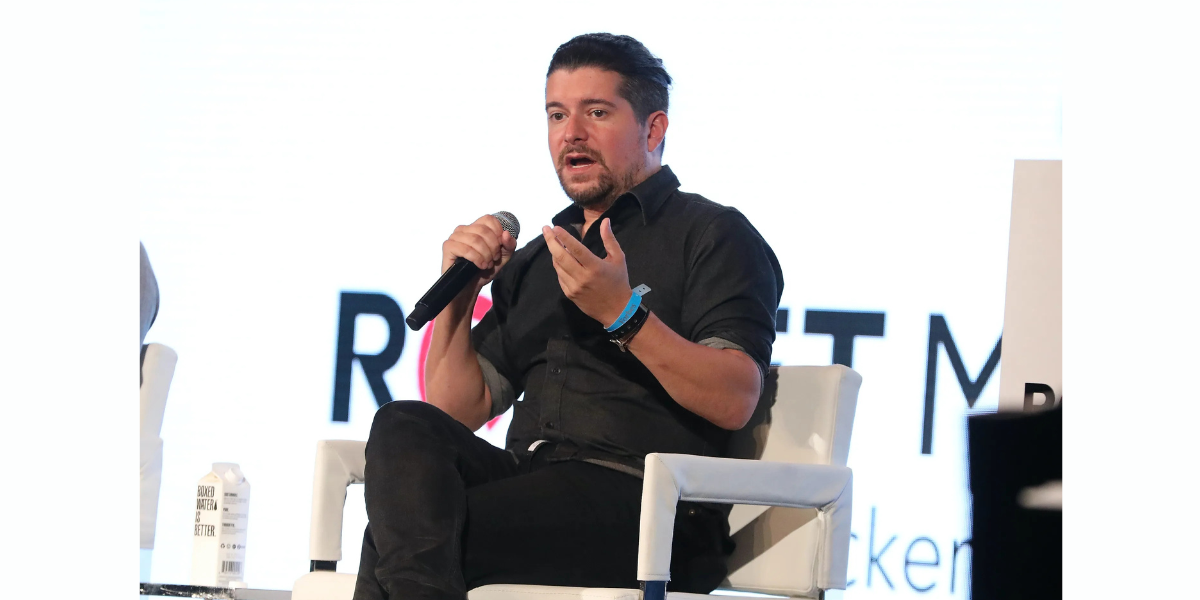“You Always Have a Boss”: Anthony Casalena on Staying Scrappy and Scaling Squarespace

How Anthony Casalena quietly built a billion-dollar business while staying true to the entrepreneurial grind.
In a world obsessed with flashy startups and rapid exits, Anthony Casalena is a rare breed: a founder who built, scaled, took public, and then took private again the same company — and never stepped down from the CEO role.
In a recent appearance on the Advice Line edition of How I Built This Lab, the Squarespace founder sat down with Guy Raz to offer practical, no-BS advice to real-world entrepreneurs — including a custom mattress maker, a clean first aid startup, and a recovery-focused mental health app. But it was Casalena’s own reflections on building Squarespace that revealed the deeper truths of scaling a digital business without losing your soul.
From Dorm Room Frustration to Digital Empire
Casalena founded Squarespace in 2003 as a college student frustrated by the lack of easy, elegant website-building tools. What began as a solution to his own problem quickly turned into a product his friends wanted — badly enough to pay for. That kernel of demand, paired with relentless product development, sparked what is now one of the internet’s most recognizable platforms.
But even after going public and crossing the billion-dollar revenue mark, Casalena stayed grounded. In fact, in 2023, he helped take the company private again.
“You always have a boss,” Casalena told Raz. “Even if you owned 100% of it yourself, your customers would be your boss.”
It’s a reminder for every founder: ownership doesn’t mean autonomy from accountability. Serving your customers well is the real bottom line.
Squarespace Today: Not Just Websites
While many still think of Squarespace as a drag-and-drop site builder, Casalena emphasized how far the platform has evolved:
- E-commerce capabilities for physical and service-based businesses.
- Scheduling and time-based sales tools via Acuity.
- Domain and email offerings after acquiring Google Domains’ assets.
- AI-enhanced design and marketing tools, with their Blueprint AI product recently named one of Time's Best Inventions of the Year.
In Casalena’s words, Squarespace has become a full-stack digital toolkit for “millions of entrepreneurs.”
The AI Era Is a Tailwind, Not a Threat
Despite the rapid rise of AI-generated content and chatbot-driven search, Casalena believes Squarespace’s relevance is only increasing:
“The website ends up being more relevant than ever... It’s where the answer engines are finding their information.”
He calls this shift from SEO to AIO — Answer Engine Optimization — a strategic evolution that keeps user websites central to discovery and conversion, even in an AI-first web.
This is a key insight for digital entrepreneurs: your website isn’t dead. In fact, it’s the anchor point for how AI tools like ChatGPT, Perplexity, and search engines find and reference you.
Real Advice for Real Founders
Throughout the Advice Line episode, Casalena offered sharp, generous feedback to three real entrepreneurs:
1. Custom Sleep Technology (Founder: Bob Zukowski)
Bob’s high-end, AI-personalized mattress company had a great product but a clunky website.
Casalena didn’t hold back:
“The site looks a little dated... I need to go here and be like, ‘I am going to spend three grand on this thing because I trust this guy.’”
His recommendation? Nail the digital storytelling. If you’re selling a $4,000 mattress, your website needs to instantly convey trust, science, and differentiation — or customers bounce.
2. All Better Co. (Founder: Stacy Bernstein)
Stacy’s clean, mom-founded first aid brand had great packaging and early traction but struggled with consumer education and positioning.
Casalena offered tactical advice:
- Consider hotel and travel partnerships for brand sampling.
- Lean into macro-style packaging (think: “plant-based,” “latex-free,” “biodegradable”) similar to how food brands highlight health stats.
- Don’t lead with the “first aid” framing — lead with daily skin wellness.
3. Kahani (Founder: Mehak Mohan)
A recovery companion app for eating disorders, Kahani was preparing for launch and looking to break into the saturated App Store.
Casalena’s advice was simple and strategic:
“Imagine it wasn’t even an app. Where do I find it?”
He suggested leading with a web-based presence to drive users into the app, rather than hoping they stumble upon it in a sea of anonymous icons.
Casalena’s Biggest Regret? Not Moving Faster
When Raz asked what he’d tell his younger self, Casalena didn’t hesitate:
“Look back and go, what decisions do I always delay on? I never move too quick on certain things. I wish I had done that faster.”
For every founder stuck in perfectionism or over-analysis, this is the nudge you need. You rarely regret moving too fast on a decision you already feel in your gut.
Final Takeaway: The Entrepreneur’s Role Evolves But Never Ends
Casalena’s story is proof that you don’t need to hop from startup to startup to be a “real” entrepreneur. Sometimes, the hardest — and most rewarding — thing is staying in the game long enough to evolve with your business.
Whether you’re building your first product or iterating after 20 years, the same truths apply:
- Serve your customers like they’re your boss.
- Make your product easy to trust, not just easy to use.
- When in doubt, move faster.





